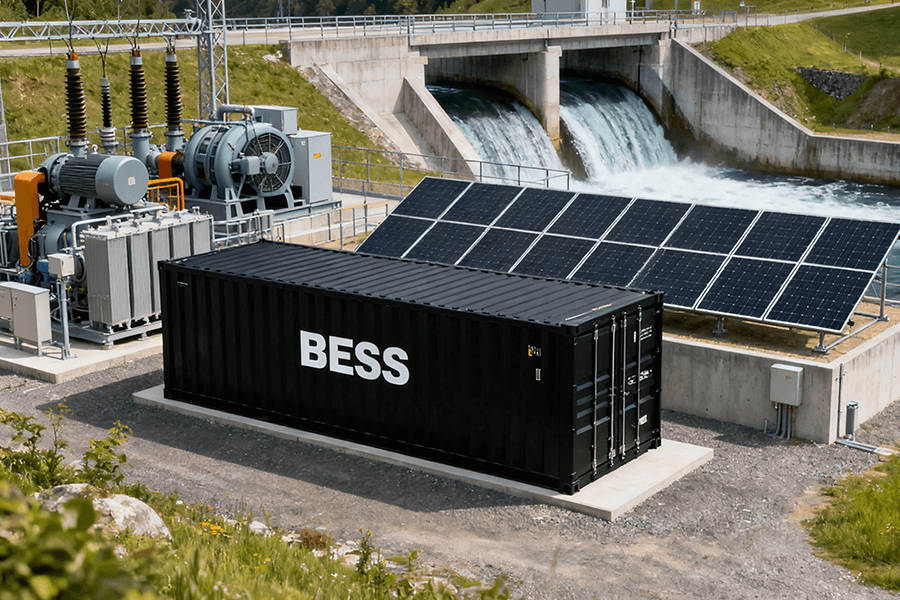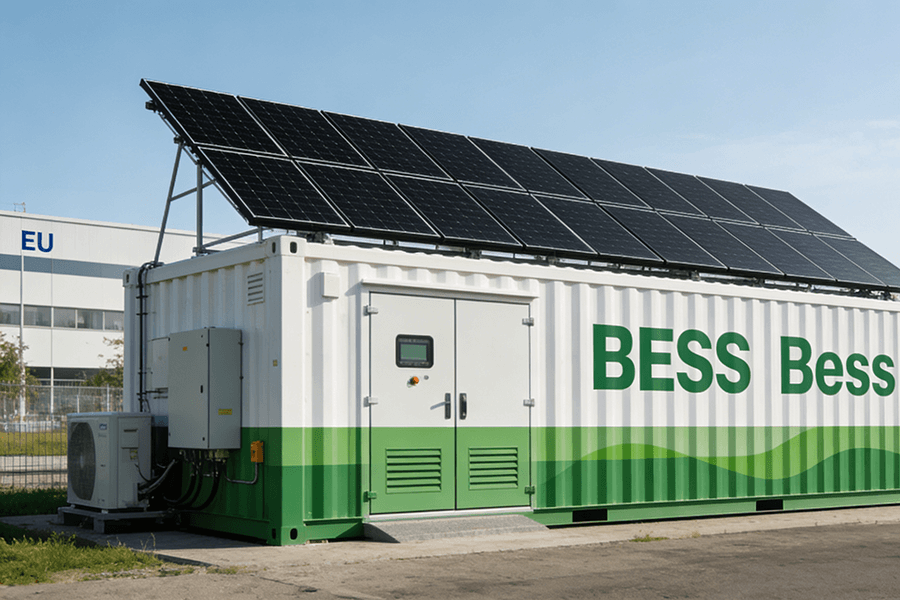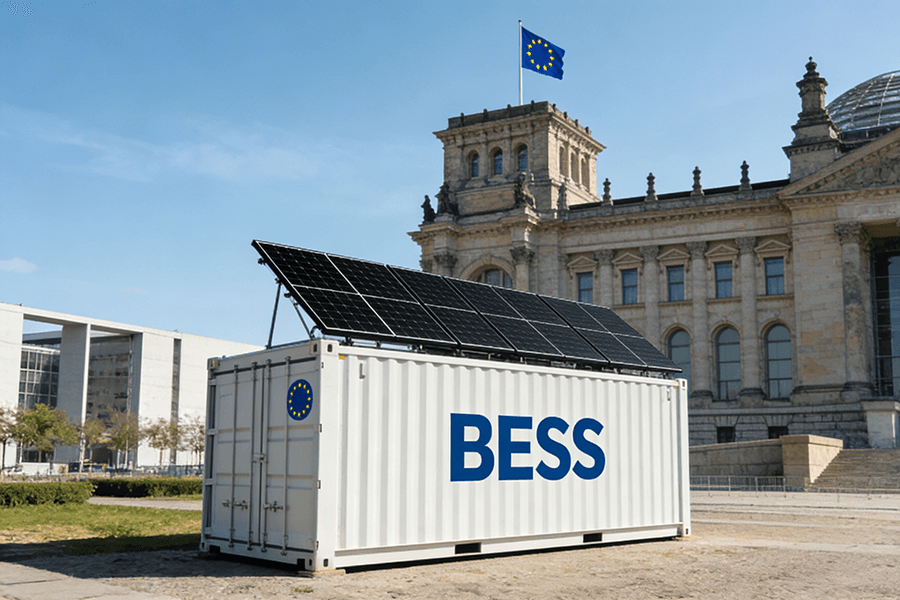
Europe’s SHP Dilemma—Too Much Water, Too Little Control
Imagine running a bakery where rain dumps flour on your doorstep (but you can’t bake fast enough) and droughts leave you with an empty pantry. That’s the life of European Small Hydropower (SHP) operators. These plants play a crucial role in powering rural communities, offsetting fossil fuels, and even earning green certificates, which contribute to a more sustainable energy landscape. However, their Achilles’ heel lies in relying entirely on the unpredictable rhythms of Mother Nature.
The statistics paint a challenging picture:
Grid Overload During Floods
- Approximately 40% of SHP plants are forced to shut down (curtailment) during spring floods. This precautionary measure is taken to prevent grid overload, but it results in significant lost revenue and energy production opportunities.
- For instance, in regions with heavy snowmelt runoff, the sudden influx of water can overwhelm the capacity of the local power grid, leaving operators with no choice but to halt operations.
Frequency Target Failures
- Roughly 30% of these plants struggle to meet strict frequency targets, essential for maintaining the grid’s stability. Think of frequency as the grid’s “heartbeat”; any irregularities can disrupt the entire electrical system.
- Failure to maintain the correct frequency not only risks penalties but can also lead to power outages and damage to connected devices.
- In some cases, these frequency fluctuations are caused by the intermittent nature of water flow, which is difficult to control without additional support.
Eco-Compliance Costs
- Czech SHP operators, as an example, spend an additional 30% on eco-compliance measures such as installing fish ladders. These environmental safeguards are necessary to protect aquatic ecosystems but put a strain on already tight profit margins.
- Across Europe, similar investments in environmental protection add significant financial burdens to SHP operations, making it even more challenging to achieve profitability.
But here’s the plot twist: Battery Energy Storage System (BESS) containers aren’t just batteries—they’re SHP “life coaches.” These innovative solutions are compact, portable, and far more intelligent than traditional storage units. By storing excess energy during peak flow periods and releasing it during shortages, BESS containers transform the unpredictable nature of water power into a reliable source of income. Let’s explore how these game-changing technologies are revolutionizing the European SHP industry.
Core Operational Wins: BESS Containers as SHP Problem-Solvers
BESS containers fix the two biggest SHP headaches: wild output swings and wasted power. These innovative storage solutions act as a sophisticated “energy buffer,” dynamically capturing excess energy during peak production and seamlessly filling in the gaps during low-output periods. This not only stabilizes power generation but also liberates small hydropower plants (SHPs) from relying on the grid’s mercy during fluctuating conditions.
Smoothing Output: From Rollercoaster to Cruise Control
Spring floods transform rivers into powerful energy sources, but such sudden surges pose significant challenges for grid stability. Grid operators prefer a consistent power supply, and abrupt increases or decreases can disrupt the entire electrical ecosystem. BESS containers address this issue by acting like a sponge, absorbing the surplus energy generated during flood seasons and releasing it gradually when summer droughts reduce water flow and power generation.
Take the case of a Swedish 2MW small hydropower plant that integrated a 1.5MWh BESS system. This strategic combination led to a remarkable 65% reduction in output variability, enabling the plant to finally meet strict grid standards. To put this achievement in perspective, it’s equivalent to converting the high-speed, unpredictable nature of a Formula 1 race into the smooth, steady journey of a highway drive. Grid operators, who prioritize stability and reliability, greatly appreciate this newfound consistency.
Maxbo Solar’s liquid-cooled BESS containers take performance to the next level. Our advanced technology ensures that internal temperatures remain within a narrow ±3°C range, even in Sweden’s harsh -30°C winters. This temperature control is crucial as it prevents any significant drop in storage capacity, eliminating the common problem of “winter battery hibernation.” As a result, SHPs equipped with Maxbo Solar’s BESS can maintain a steady power output throughout the year, regardless of seasonal temperature fluctuations.
| Performance Metric | Before BESS | After BESS |
|---|---|---|
| Output Variability | High | Reduced by 65% |
| Grid Compliance | Inconsistent | Consistent |
| Winter Capacity | Variable | Stable |
Killing Curtailment: Stop Flushing Money Down the Drain
Grid operators implement curtailment measures during periods of high power generation to avoid overloading the grid. Unfortunately, this often forces SHPs to shut down or reduce their output during peak flow, resulting in significant power and profit losses. BESS containers offer a practical solution by storing excess energy instead of allowing it to go to waste.
- Austrian Alpine SHP Case Study
An Austrian alpine SHP experienced the financial impact of curtailment firsthand. Before implementing a BESS system, the plant lost approximately €80,000 annually due to forced shutdowns during high-flow periods. After integrating a BESS, however, the plant was able to eliminate these losses completely. The saved funds are sufficient to cover an entire year’s worth of maintenance costs or provide a substantial bonus to the plant’s team.
- Czech SHP Challenges
Czech SHPs face similar challenges, exacerbated by the high unit costs of €4,000/kW imposed by environmental regulations. Curtailment losses are particularly painful in this context. By adopting BESS containers, Czech SHPs can quickly turn these losses into savings, improving their overall financial viability and sustainability.
In conclusion, BESS containers offer a dual benefit to European small hydropower plants: they stabilize power output, making it more grid-friendly, and prevent costly power losses due to curtailment. As the demand for clean, reliable energy continues to grow, these innovative storage solutions are poised to play a crucial role in optimizing the performance of small hydropower plants across the continent.
Revenue Boosts: From “Keep the Lights On” to “Make Bank”
SHPs used to sell power when the river flowed, not when prices spiked. BESS containers flip that script, turning SHPs into energy traders and grid heroes.
Time-of-Use Arbitrage: Sell High, Store Low
Electricity prices exhibit dynamic fluctuations, much like airline tickets—commodity prices tend to be cheaper during midday hours when demand is lower, and significantly pricier at night when consumption peaks.
Battery Energy Storage System (BESS) containers offer Small Hydropower Plants (SHPs) a strategic advantage by enabling them to engage in time-of-use arbitrage. During periods when rivers are flowing at high capacity, typically accompanied by lower electricity prices of approximately €40/MWh, SHPs can store surplus energy generated by the plants. They can then release and sell this stored power during evening peak hours, when prices soar to around €110/MWh, capitalizing on the price differential.
Real-world case studies underscore the effectiveness of this strategy:
- In France, a SHP equipped with a 1MWh BESS system reported a notable 20% increase in revenue through time-of-use arbitrage.
- In Germany, where the electricity market experienced heightened intraday volatility in 2024, BESS revenues surged to over €150/kW/yr. This volatility has created an opportune environment for SHPs, with projections indicating that revenue increases could reach as high as 25%.
Table 1: Arbitrage Revenue Potential Across Europe (2024)
| Country | Day-Ahead Price Spread (€/MWh) | 1MWh BESS Annual Revenue (€) |
|---|---|---|
| Germany | 70 | 25,200 |
| France | 65 | 23,400 |
| Netherlands | 68 | 24,480 |
Grid Frequency Support: Get Paid to Be a Hero
Maintaining grid stability is a constant challenge, particularly when unexpected disruptions occur, such as a sudden wind farm shutdown. In such scenarios, grids require immediate corrective measures to address frequency dips and ensure a consistent power supply.
Small Hydropower Plants (SHPs) play a crucial role by providing steady base power. Meanwhile, Battery Energy Storage System (BESS) containers offer an additional layer of support with their ability to adjust output in milliseconds—an astonishingly rapid response that far outpaces human reaction times.
Several European countries have witnessed the significant impact of SHP-BESS systems on grid stability and the financial benefits they bring:
- In Finland, an SHP-BESS system earns approximately €30,000 annually from providing frequency response services, contributing to grid reliability while generating substantial revenue.
- In the Czech Republic, the Dlouhé Stráně pumped-storage hydroelectric plant receives a premium of €78/MWh for its frequency regulation services, which is 240% higher than the base price.
These examples demonstrate that small SHPs can also participate in providing grid frequency support, highlighting the accessibility and viability of this revenue stream for facilities of all sizes.
Climate Resilience: BESS Containers as Weather Shields
Climate change has transformed the once-predictable “seasonal rain” into a volatile pattern of “flash floods followed by 6-month droughts.” This unpredictable weather cycle poses a significant threat to the stability of Small Hydropower Plants (SHPs). However, Battery Energy Storage System (BESS) containers offer a revolutionary solution, making SHPs resilient and adaptable to these extreme conditions.
Drought Proofing: Stash Wet-Season Power for Dry Days
The year 2023 witnessed a severe drought in Spain, where many rivers dried up, leaving traditional hydropower plants in a precarious situation. A prime example is a 2MW SHP in Spain that integrated a BESS into its operations. During this drought, while neighboring plants without energy storage capabilities saw their output plummet to a mere 40%, this SHP managed to maintain an impressive 70% of its power generation capacity.
This significant difference not only ensured the continuous power supply to the local village but also safeguarded the plant’s reputation and reliability among its customers.
Maxbo’s BESS containers are engineered to excel in such challenging environments. Our state-of-the-art liquid-cooled design is a game-changer, allowing the system to operate seamlessly even in the scorching Spanish summers, where temperatures can soar up to 55°C. This advanced cooling technology ensures that the stored energy remains stable and undiminished, regardless of the external heat.
The following table highlights the performance comparison of SHPs with and without BESS during drought conditions:
| Plant Type | Power Output During Drought | Key Advantage |
|---|---|---|
| SHP with Maxbo BESS | 70% of normal capacity | Liquid-cooled design for heat resilience |
| SHP without BESS | 40% of normal capacity | Vulnerable to extreme temperature fluctuations |
Future-Proofing Investments: Make Your SHP Irresistible
In the world of investment, risk aversion is a fundamental principle, and the current climate chaos presents a considerable risk factor. A German SHP operator took a strategic step by incorporating a BESS into their plant, and the results were remarkable. The long-term value of their SHP increased by 35%, a testament to the transformative power of BESS.
But what’s the secret behind this significant boost in value? BESS effectively mitigates the inherent risks associated with weather-dependent power generation, turning SHPs from unpredictable assets into reliable, stable investments.
With the European Union setting an ambitious target of achieving 55% renewable energy by 2030, there is a growing emphasis on the resilience and reliability of renewable energy sources. SHPs equipped with BESS containers are well-positioned to take advantage of this trend. These plants are not only more likely to receive preferential treatment when it comes to subsidies but are also seen as more attractive investment opportunities.
In essence, BESS containers are not just simple upgrades; they are comprehensive investment insurance policies, protecting SHPs against the uncertainties of climate change and ensuring their long-term viability in the competitive energy market.
Why Maxbo Solar? We Speak SHP (and Profit)
At Maxbo Solar (that’s us!), we didn’t just build BESS containers—we engineered them specifically for the unique demands of European Small Hydropower Plants (SHPs). Here’s a detailed breakdown of why we’re the optimal partner for your energy storage needs:
Unrivaled Durability: Built to Withstand Extreme Conditions
Our state-of-the-art liquid-cooled BESS containers are engineered to perform flawlessly across a wide temperature spectrum, from -30°C to 55°C. This robust design makes them the ideal solution for the diverse climates of Europe. Whether it’s the freezing winters of Sweden or the scorching summers of Spain, our containers eliminate the common excuse of “this climate is too harsh” for energy storage systems.
Intelligent Operation: Maximizing Profitability with Advanced Algorithms
Leveraging real-time data from TIMERA, our proprietary algorithms continuously monitor electricity price spreads across European markets. This enables our BESS containers to:
- Automatically charge during periods of low electricity prices
- Discharge when prices are high
It’s a truly “set it and forget it” solution that maximizes arbitrage gains for SHP operators. No more manual intervention or missed opportunities—our system does the work for you, optimizing your energy trading strategy 24/7.
Proven Track Record: Trusted by Major European Projects
We’re not new to the energy storage game. Our BESS containers have already proven their reliability and effectiveness in some of Europe’s most demanding environments. For instance:
- Location: Rotterdam port terminals
- Results:
-
- Reduced diesel consumption by 34%
-
- Generated an annual savings of €2.3 million
If our technology can handle the complex energy demands of port cranes, you can trust it to deliver exceptional performance for your Small Hydropower Plant.
Rapid Return on Investment: Faster Profits, Smarter Investment
One of the most compelling advantages of our BESS containers is their remarkable payback period:
- Average Payback: Just 3.2 years (significantly faster than most solar or wind upgrade projects)
- Example: For a 2MW SHP, profitability is achieved in under 4 years
This makes our energy storage solution a smart and lucrative investment.
Curious to learn more?
- Explore our cutting-edge technology at www.maxbo-solar.com
- Get in touch with our expert team
We’re committed to helping you transform your SHP from a “weather victim” into a resilient “climate champion,” optimizing energy output and maximizing your bottom line.
Conclusion: Unleash Your SHP’s Superpower
European SHPs aren’t broken—they just need a sidekick. BESS containers turn variability into reliability, losses into profits, and climate risk into resilience.
The data doesn’t lie:
- 65% smoother output
- €80k/year in curtailment savings
- 20% higher revenue
- 35% more asset value
But policymakers need to step up. EU subsidies for SHP-BESS integration would turn these wins into a movement—powering rural communities, cutting emissions, and making renewables unstoppable.
For SHP operators, the choice is simple:
- Keep fighting the river
- Let BESS containers tame it
With Maxbo Solar by your side, the latter isn’t just easier—it’s profitable.






